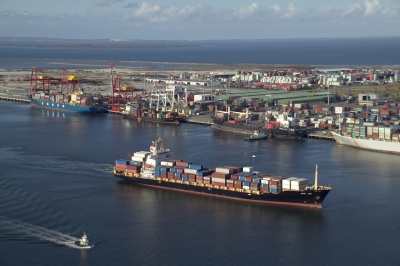Port of Brisbane needs a dedicated freight connection, Mr Abson said.
The Infrastructure Association of Queensland is supporting the State Infrastructure Plan and is urging the Palaszczuk Government to fast-track funding to support its implementation.
IAQ chief executive Steve Abson said the IAQ’s analysis of the SIP 4-year pipeline showed that of the 350 plus infrastructure activities listed, around 200 are already underway or committed. Two in every three of these projects can deliver significant economic benefit and productivity improvements, by providing transport, energy and other vital service efficiencies.
The SIP has also acknowledged the importance of building early community & industry confidence. “It’s pleasing to see creation of a $500 million fund to support jobs in North Queensland and also get some much needed new projects off the ground,” Mr Abson said.
However, Mr Abson noted that only 12 of the 93 projects recently prioritised by Infrastructure Australia are in Queensland. “The three highest priority projects for Queensland are Cross River Rail, Ipswich Motorway Rocklea-Darra and Port of Brisbane dedicated freight connection,” Mr Abson said.
“The near-term challenge for the Queensland Government is attracting Commonwealth contributions to fund these important major projects in the face of other competing priorities in Southern States,” he added.

In Infrastructure Australia’s recently released Australian Infrastructure Plan, there is a suite of reforms that prioritised the user such as the commuter waiting for a train, the family paying its electricity bill, and the business looking to capitalise on overseas markets.
Mr Abson said the whilst industry welcomed the State Infrastructure Plan’s alignment with many of the key recommendations for reform made by Infrastructure Australia, the Queensland Government would strengthen its case for Commonwealth funding by supporting the proposed reforms targeting state-based funding options.
“We are likely to see increased tension on funding negotiations as the Commonwealth links payments to State and Territory governments for infrastructure to the delivery of national reform objectives and it’s important that Queensland doesn’t miss out,” Mr Abson said.
“With the State Infrastructure Plan re-stating the Queensland Government’s policy to protect ownership of public assets, they will need to explore alternative funding options,” he added.
“This includes applying new project governance arrangements similar to WestConnex in NSW, where the government has established a state-owned company to deliver the project, as well as finding ways to increase funding contributions from the private sector through broader market-led proposals, availability PPP’s and value capture.
“However, it remains to be seen whether these alternatives can fully sustain our infrastructure needs without the lever of asset recycling, the trigger for the current economic upswing in NSW. Used correctly as a virtuous cycle of leasing and reinvestment in infrastructure, the benefits from asset recycling are inter-generational,” Mr Abson said.
“Anticipated expenditure on Queensland infrastructure as a percentage of general government revenue is below 15 per cent and at its lowest level since 2004. There is clearly an increased role for the private sector to play and IAQ looks forward to continuing its constructive role working with the Queensland Government to unlock the sectors full funding potential,” he added.





